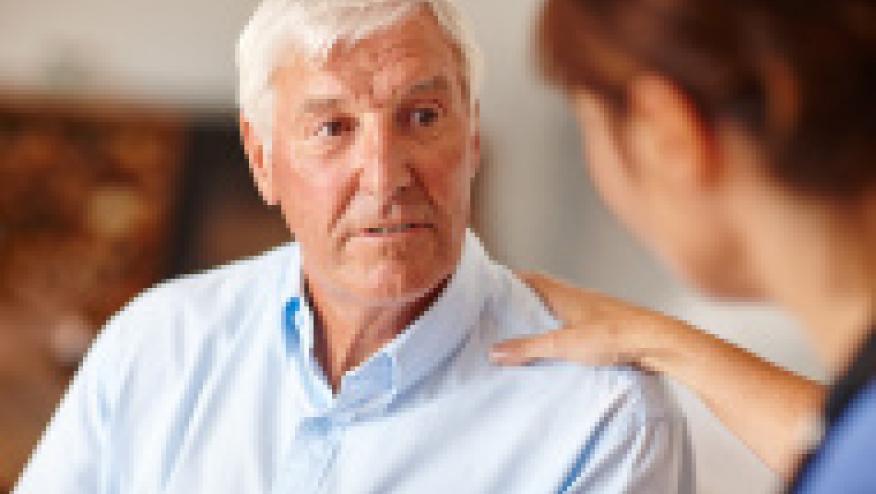Listen to the Patient…She’s Telling You the Diagnosis Save

The title is a quote from Sir William Osler. Several months ago, I asked numerous rheumatologists to write me with the favorite medical or rheumatologic quote. Most quotes were more about medicine than rheumatology, and the same title quote was a favorite of many rheumatologists.
Oslerian wisdom seems to resonate with rheumatologists, and listening is at the core of what matters with good rheumatologists. Communication is essential and challenging; the listening part more so.
I had a 20-minute visit scheduled with Mrs. Goldstein yesterday. She is a thin, foreign-born, older woman with rheumatoid arthritis, recently complicated by lymphoma. She is a calm, quiet and smart patient, and as visits go, hers are usually easy and efficient as she is doing well. As I sat, I asked “where is your husband this morning”, as he usually attends her medical visits. I had already turned to the computer and started to bring up her file, meds, etc. However, most noticeable was her long pause and head down. She slowly began to tell me why he wasn’t present, why she was alone today.
He was in the hospital having tests. Something not quite right with his intestines for some time now. She didn’t know enough, but clearly had a worldful of worry. Slowly, she began to pour out those worries, as if she were writing checks she knew she couldn’t cover. It was just her and him, no others left amongst family or friends. It’s just them for over 50 years. She cooking and caring for him, him providing, caring and always there for her. She likened him to being “strong as rope”. And now her life’s rope was in danger of unraveling.
There were no clear answers and no discussion was necessary. She didn’t need a quality of life questionnaire. She needed to sort out a major life challenge, and and she needed someone who would listen without attempting to fix, discuss or even affirm. Luckily, nearly 3 years of caring for her engendered enough trust to allow her to pour out the worries. This day it became clear that my responsibilities included knowing more than her disease, drugs and lab values.
Amazing things happen when you listen. While this should be purposeful, listening can be accidental too (like with Mrs. Goldstein). I’m surprised when I find myself listening, instead of the typing, teaching, talking or injecting routine. In the course of face-to-face study, you become more than a provider. You can be bestowed new titles - good friend, a compassionate or caring physician, etc. Patients will actually think of you as being smarter than their other doctors, not because you said less, but because you let them say more of what matters to them. Discovering a drug’s efficacy or safety requires listening. Uncovering why a prescribed medication was not taken requires patient listening. Clinical skills are all about discovery.
The 20 minutes passed. I hadn’t yet recorded her pain level, detailed the stiff joints or new medications, or calculated RA metrics. Instead I witnessed how a fragile looking but strong woman copes with more than RA and lymphoma. I only have to manage a 99214 RA visit; she has to manage a major life challenge that has capsized her daily doldrums.
I listened and refilled her meds. I’m rewarded with a newfound appreciation and perspective on the intersection of life and disease. Navigating those crossroads is best with GPS charged with trust, wisdom and two ears.










If you are a health practitioner, you may Login/Register to comment.
Due to the nature of these comment forums, only health practitioners are allowed to comment at this time.